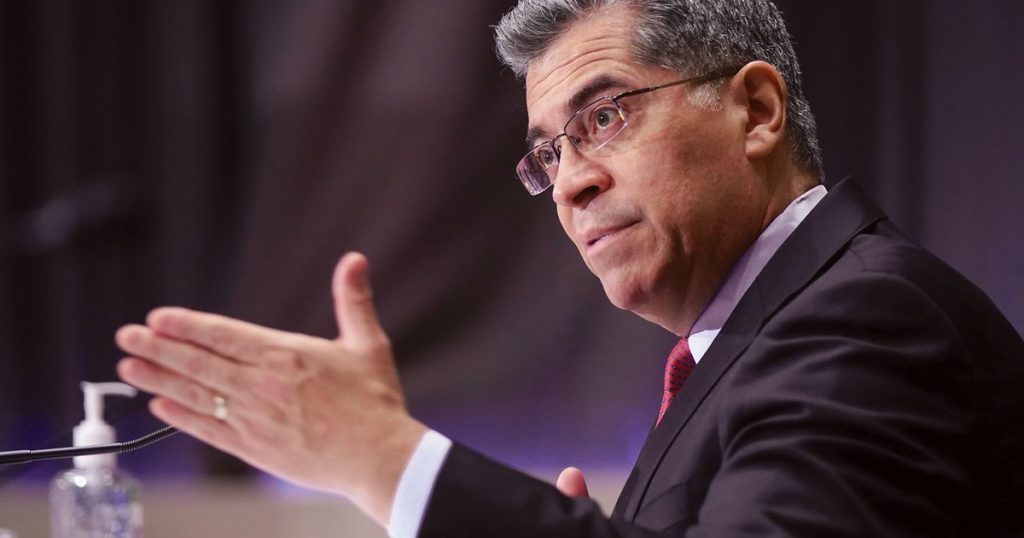The Health and Human Services Department will enforce standing policies that protect access to reproductive healthcare and will consider taking additional steps in response to the Supreme Court ruling that ended the federal right to abortion, Secretary Xavier Becerra said at a news conference Tuesday.
The Supreme Court overturned Roe v. Wade Friday, leaving abortion laws up to the states. The procedure is already banned or severely restricted in a growing number of states, and legal battles are underway challenging laws in several states.
“Friday’s Supreme Court decision was despicable, but it was also predictable. HHS has been preparing for this for some time,” Becerra said. Politico first reported a draft of the Supreme Court decision reversing Roe v. Wade and Casey v. Planned Parenthood more than a month before the final decision.
“There is no magic bullet, but if there is something we can do, we will find it and we will do it at HHS. Indeed, that was the instruction I received from the president of the United States,” Becerra said.
Although Becerra said the department has been preparing for the possibility that federal abortion protections would be overturned, specific details on what the government plans to do are scant. The secretary didn’t directly answer a question on when more concrete plans would be available.
“We’re not interested in going rogue and doing things just because,” Becerra said. “We will do everything we can with what we find to make sure we’re protecting our services. It takes a little time because we want to do it right. We want to do it according to law.”
The secretary outlined a handful of actions HHS will take to enforce largely preexisting protections, including directing the Office of Civil Rights to uphold privacy and nondiscrimination rules for providers offering reproductive healthcare and patients accessing care.
Federal law affords patients the right to privacy for medical information. But reproductive health data may not be protected if there’s a warrant, court order or subpoena for their release.
Doctors have little legal protection if they’re subject to civil, administrative or criminal charges related to providing abortions in states that restrict or outlaw those services.
“Rights continue forward, whether it’s family planning, whether it is in birth control services, and we want to make sure that there’s no misunderstanding that that will enforce any violations of those rights,” Becerra said. He did not offer details on the department’s enforcement strategy.
HHS will also examine its authority under the Emergency Medical Treatment and Labor Act of 1986 to support clinical judgments by providers treating pregnant patients, Becerra said. The department will make sure doctors, pharmacists and other providers have the necessary training to handle family planning needs and administering patient referrals, he said.
Becerra directed the Centers for Medicare and Medicaid Services to protect family planning care such emergency contraceptives and long-acting contraceptives such as intrauterine devices, he said. “We will make clear that family planning providers are able to participate in the Medicaid program. These clinics provide safe care and have a vast expertise in providing reproductive healthcare,” he said.
HHS will also work to facilitate access to medication abortion, Becerra said. The Hyde amendment disallows federal funds being used for abortions except for instances of rape, incest or physical harm to the parent. Federal law requires HHS programs to provide access to medication abortion in those circumstances, Becerra said. President Joe Biden left the Hyde amendment out of his most recent budget request but Congress renewed the policy.
Becerra said he is aware of proposals to establish abortion clinics on federal property, but that the administration has made no decision on whether to pursue that method of providing abortion services in states that don’t allow them.
